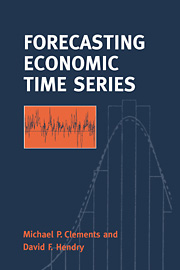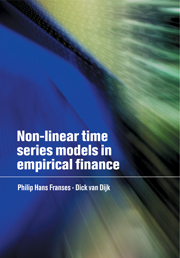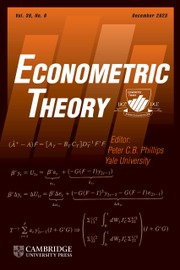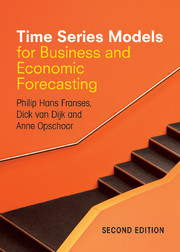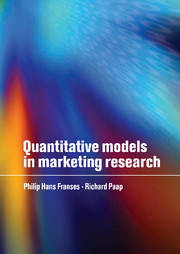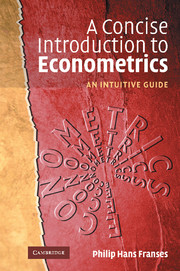Expert Adjustments of Model Forecasts
Theory, Practice and Strategies for Improvement
£26.99
- Author: Philip Hans Franses, Erasmus Universiteit Rotterdam
- Date Published: October 2014
- availability: In stock
- format: Paperback
- isbn: 9781107441613
£
26.99
Paperback
Other available formats:
Hardback, eBook
Looking for an inspection copy?
This title is not currently available on inspection
-
To what extent should anybody who has to make model forecasts generated from detailed data analysis adjust their forecasts based on their own intuition? In this book, Philip Hans Franses, one of Europe's leading econometricians, presents the notion that many publicly available forecasts have experienced an 'expert's touch', and questions whether this type of intervention is useful and if a lighter adjustment would be more beneficial. Covering an extensive research area, this accessible book brings together current theoretical insights and new empirical results to examine expert adjustment from an econometric perspective. The author's analysis is based on a range of real forecasts and the datasets upon which the forecasters relied. The various motivations behind experts' modifications are considered, and guidelines for creating more useful and reliable adjusted forecasts are suggested. This book will appeal to academics and practitioners with an interest in forecasting methodology.
Read more- Presents an econometric perspective on expert adjustment - the notion that many forecasters adjust model forecasts based on their own intuition
- Brings together current literature, recent theoretical insights and new empirical results
- The discussion is based on a range of real forecasts and the datasets upon which the forecasters relied
- Provides a step-by-step discussion of the key arguments, with the conclusion that expert adjustment of model forecasts can be very beneficial, but that it should be properly done
Reviews & endorsements
'All economic and business forecasting involves judgment to some extent, but most books focus on the application of statistical methods. At last we have a book that directly addresses the role of judgment in forecasting and applies a set of rigorous methods to assess its potential strengths and limitations.' Paul Goodwin, Emeritus Professor, University of Bath
See more reviews'This monograph is an important substantial analysis of a crucial aspect of forecasting practice that is often treated far too casually. Expert interventions on model-based forecasts are ubiquitous, but rarely subject to formal analysis. This book will be valuable in practice and a stimulus to researchers.' Derek Bunn, London Business School
Customer reviews
Review was not posted due to profanity
×Product details
- Date Published: October 2014
- format: Paperback
- isbn: 9781107441613
- length: 143 pages
- dimensions: 226 x 150 x 8 mm
- weight: 0.21kg
- contains: 9 b/w illus. 18 tables
- availability: In stock
Table of Contents
Preface
1. Introduction
2. Optimal behavior of experts
3. Observed behavior of experts
4. How accurate are expert-adjusted forecasts?
5. How can forecasts be improved?
6. Conclusion, limitations and implications
Data appendix
References
Index.
Sorry, this resource is locked
Please register or sign in to request access. If you are having problems accessing these resources please email [email protected]
Register Sign in» Proceed
You are now leaving the Cambridge University Press website. Your eBook purchase and download will be completed by our partner www.ebooks.com. Please see the permission section of the www.ebooks.com catalogue page for details of the print & copy limits on our eBooks.
Continue ×Are you sure you want to delete your account?
This cannot be undone.
Thank you for your feedback which will help us improve our service.
If you requested a response, we will make sure to get back to you shortly.
×

